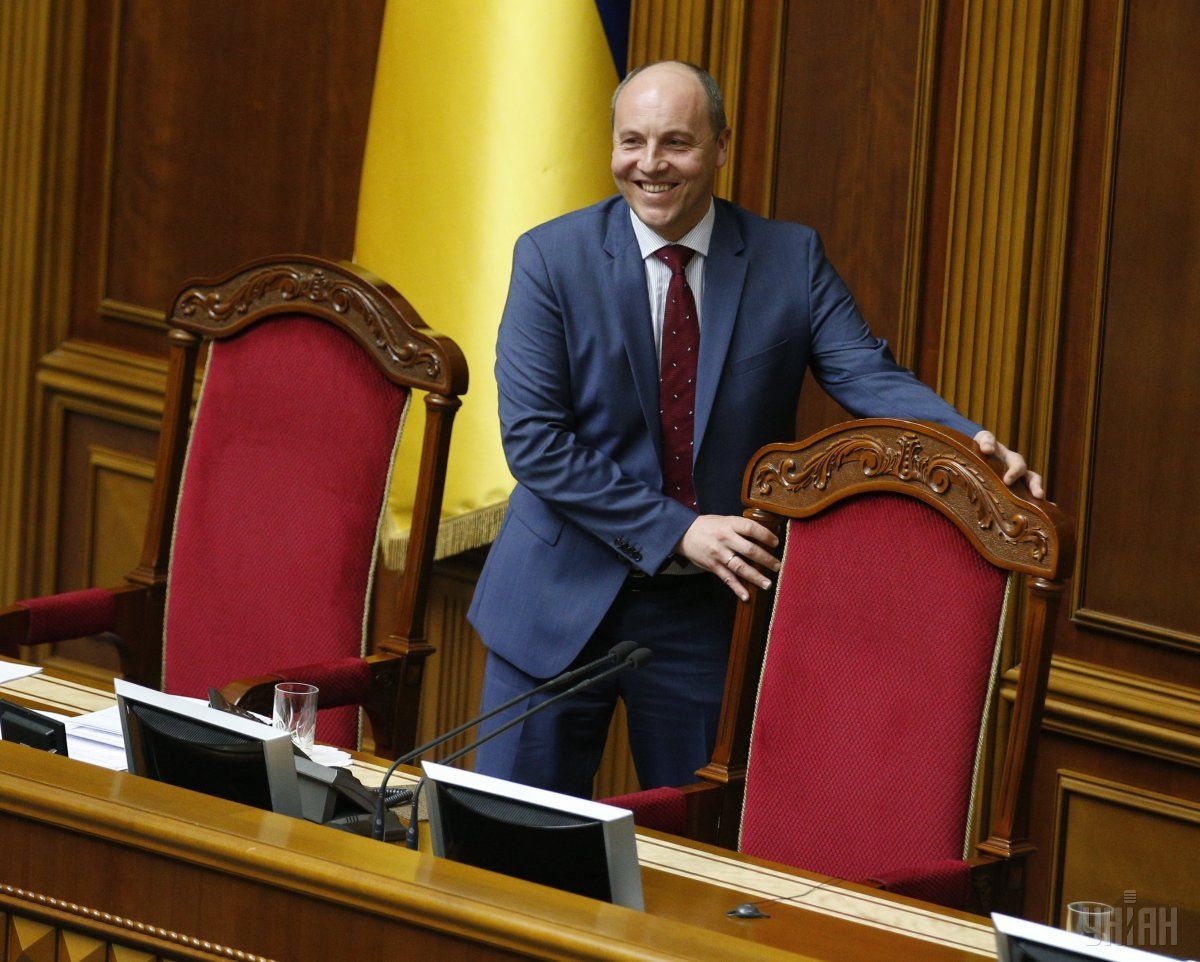
Rada Speaker Andriy Parubiy: Ukraine was always losing because of internal confrontation rather than external aggression
In an interview with UNIAN Verkhovna Rada Speaker Andriy Parubiy has explained why the Parliament failed to support the introduction of a visa regime with Russia, when the Rada would reform itself and whether we should expect snap elections in 2017.
You started the year of 2016 as a Deputy Speaker and finished it as Head of Parliament. Do you remember your first decisions in office?
My first decision was opening the doors to the presidium. They used to be opened and closed with the button and I felt as a watchman. So my first management decision was to get rid of that button despite people from the staff would tell me this would be a mess ...
… that the deputies would be running up to the presidium ...
Yes, but nothing horrible happened. (Laughs).
What are the plans that you had set for yourself in the position of the speaker have you managed to implement in 2016?
I remember my first presser as a Speaker and the issues I stated back then. Among them, there were de-communization, the issue of judicial reform, the issue of a visa-free regime with the EU (meeting all EU requirements). These were the issues I was most focused this year. Although, I will say frankly, de-communization was the most significant of them for me.
Why?
I call it the Ukrainian agenda. I mean, there is the agenda, consisting of a huge list of questions in many areas - deregulation, the energy sector, the judicial reform. But I was very well aware that the issue of de-communization was my task here, both in terms of my views and beliefs and in terms of duration and strategy of this issue. Not all the people realize its ultimate strategic importance.
These things are difficult to assess in the short term, aren’t they?
Yes. You have to understand that people were born, went to a kindergarten, studied in cities and towns, named after the killers of their grandparents. I believe that when the cities, villages, and streets are named after the executioners of our nations, this is a traumatized mentality of the whole nation. Now the situation is beginning to change. Decades and centuries will pass, reforms will be carried out in all areas, but this issue will remain. It is fundamental.
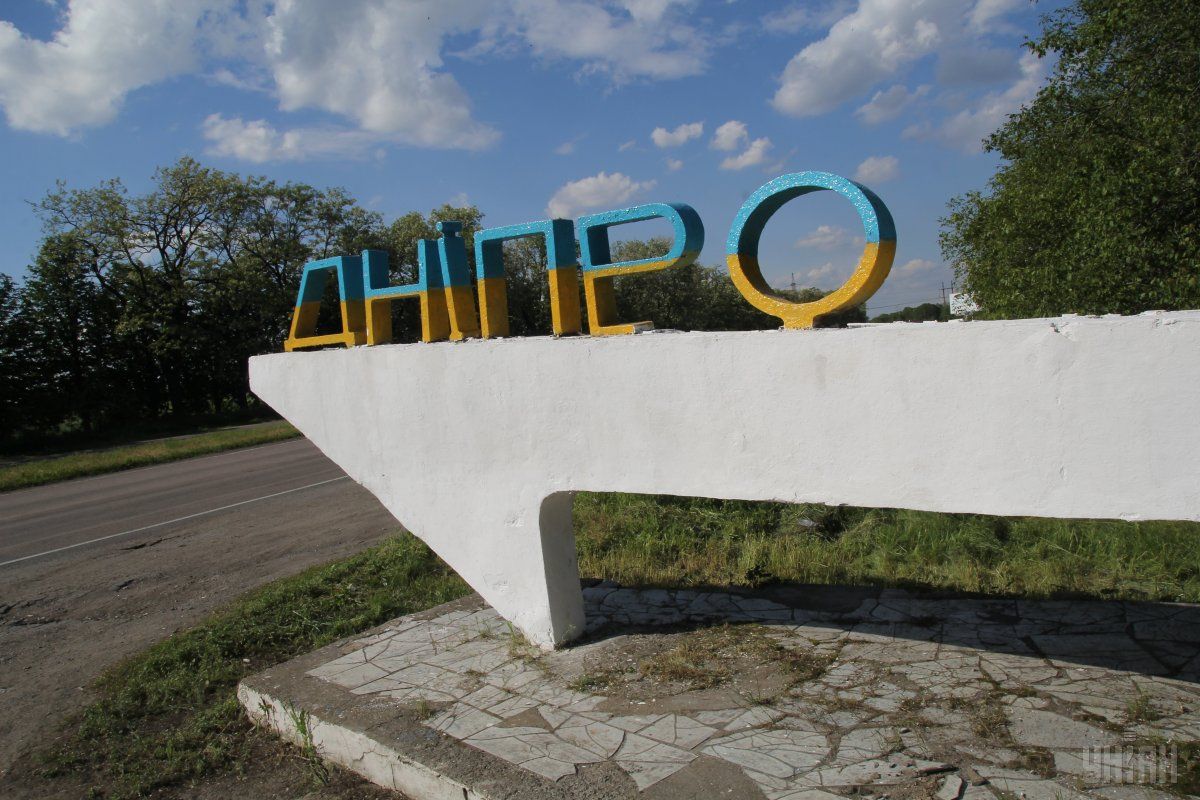
We changed the names of some 1,000 settlements, two large cities - Dnipro and Kropyvnytskiy. By the way, it was a very difficult step. While submitting the issue of renaming to a vote, I was not always sure what there would be enough votes to support the move. I knew that there were people in the hall who strongly opposed such changes, such new names.
Were the opponents part of the opposition or were they also present in the coalition?
I will put it this way: they were people from various political forces. And they had various reasons: habitual reasons for some, “Russian world” things for the others, but there have always been opponents of de-communization.
So when I saw the voting results for [renaming] Dnipro and Kropyvnytskiy hitting over 226 [247 and 230 votes, respectively], I had this deep feeling of victory and justice. And if you ask me about the Rada’s greatest contribution this year, though many other important reforms were carried out, I would call de-communization as a key direction.
Another issue that you have once initiated was the abolition of a visa-free regime with Russia. What prevented the Parliament from adopting such a decision in 2016?
I am the author of the relevant bill and I first came out with this initiative back when I was a Secretary of the National Security and Defense Council. I believe that we must have a visa regime with the aggressor state. I am deeply convinced in this.
Speaking of whether the issue was ready to be perceived right in the session hall, indeed the debate arose. After some factions asked to postpone a decision, I suggested that the heads of parliamentary factions and the Foreign Ministry continued the discussion and working on this issue, to develop a position on it. After all, the negative vote on this issue would be a major blow to Ukraine’s image.
I am pleased to see that the debate is continuing. By now, our foreign minister has already said that he was admitting such possibility.
I hope that next year we will be able to agree on the introduction of visas with Russia. This issue remains on my personal watch. I will be insisting on it, so that it finds support in the session hall.
What other issues in 2016 do you perceive as failures?
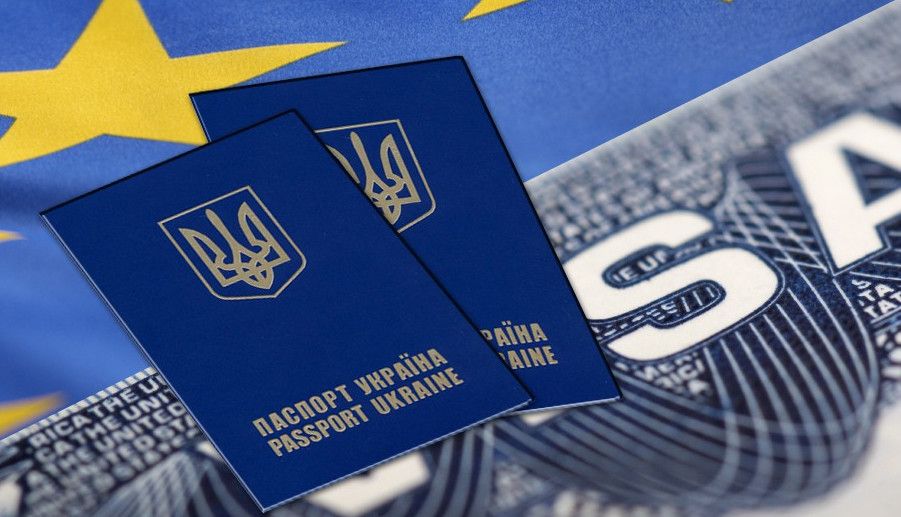
I think this is another issue with visas - we had counted on visa liberalization with the EU this year. And I emphasize that the Ukrainian Parliament on its part has fulfilled all the conditions set. But despite this, we have not seen a visa-free regime before the New Year, as we had expected.
And if we focus solely on the Parliament’s work, what has prevented the Rada, for example, from passing the Electoral Code or appointing new members of the Central Election Commission?
On the election reform, I am one of the authors of the Electoral Code. But the main essence of working in the Verkhovna Rada is not only in drafting the bill and submitting it, but finding enough votes for it, and the preliminary decision of factions on a particular issue is important.
To move on with the election reform more quickly, one of my first decisions as Speaker was to create a working group, which included acclaimed experts on election law. There have been seven or eight meetings where we were able to review all bills relating to the amendments to the electoral system, analyze them and make comparisons. In fact, the working group has provided a professional assessment.
Then it was suggested that a similar discussion took place in factions, for the factions to determine and propose what was acceptable for each of them, what issues could be discussed, and what issues were completely unacceptable for them in the electoral code. That is, for example, this proposal is a Number one for us, this one is also OK, but that one is absolutely unacceptable. Then we can adjust and see which of these systems has the greatest support among factions and understand, in what form and when we should submit the bill for consideration.
So what have the factions decided?
As far as I know, this discussion has not yet been completed in all factions yet. But I believe that this question is of great importance. It is important for the functioning of a social lift system in Ukraine. So I hope we will come to a positive result. But political forces must present their vision and interpretation.
Just as with the appointment of new members of the CEC?
On this question, two factions turned to me asking me to postpone the vote until a political debate on this issue was completed.
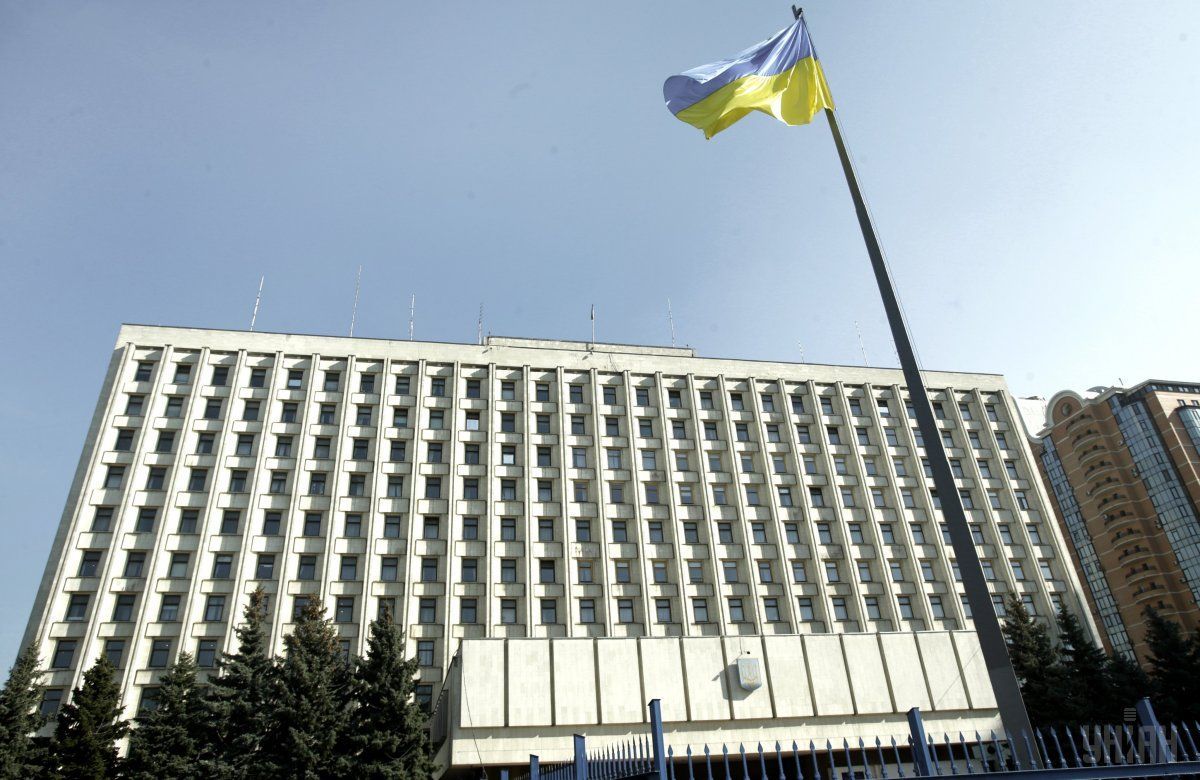
I have already said that the greatest danger is when the previous CEC members are dismissed and the new ones are not yet appointed. I have repeatedly talked with the president about it. We even agreed that he allowed some candidate to be replaced in a discussion with the factions so that the nomination for the CEC actually found support in the hall.
Now your fears began to come true. The NABU [National Anti-Corruption Bureau] has the investigation ongoing against CEC Head Mykhailo Okhendovsky...
The recent developments should accelerate the consideration and approval of the new CEC composition. I am personally set to have us all reach a decision as soon as possible.
This spring, the Rada agreed that the recommendations of the European Commission were the basis for the parliament’s reform. What happened next?
The situation with the Parliament reform is better than that we have just discussed. Overall, this reform includes a list of issues requiring a vote in Parliament as well as a number of issues that do not require the decisions of the Rada as a state body but may be decided by the decisions of the Speaker of Parliament. For example, electronic parliamentary agenda is something that was approved with the orders of a Speaker – both by Groysman and by me.
Another thing is an "Open Rada". Publicity, free access to the documents of Parliament, in my opinion, is more open than in many European parliaments. Especially for me, it was very important that all inquiries of the MPs had to be published. Indeed, if there were any questions regarding corruption or lobbying (in the bad sense of the word), they mainly related to parliamentary inquiries. And when there is open access, every journalist, expert, any citizen can see whether there is any corruption or lobbying component in the deputies’ work. Therefore, I think that the "Open Rada" is an important step in the reform of Parliament.
Probably I would single out as a significant factor the so-called thematic days. That’s when we don’t draw up the agenda by the number of bills in various fields, piled up for consideration, but go for certain topics. I introduced this tradition in early fall, and the issues have been addressed in [thematic] blocks since then.
It goes like this: some committee proposes a certain set of questions, they are submitted for consideration, and anyone could witness when the parliament this fall would, for example, consider one thematic cluster of issues before noon, and after lunch, there would be another block. In my view, we saw a significant increase in the efficiency of the adoption of bills and their quality.
And what is it about?
The thing is that, with these thematic blocks, whole groups are preparing for them in advance. Both the government and the relevant committee, expert community and the public have time to study the issues that will be submitted to the session hall.
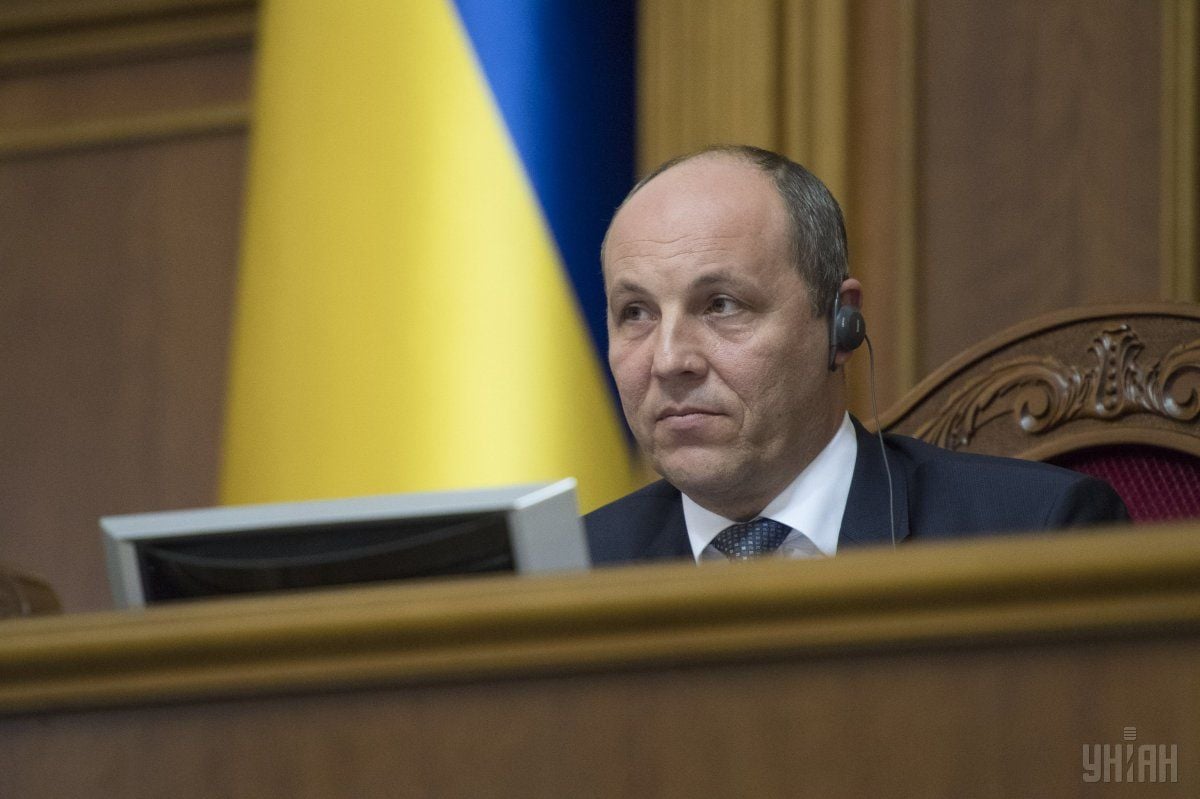
As a result, when we come to passing a move in Parliament, sometimes we don’t even have a debate on a particular issue. That’s the way it happened with environmental issues. Ahead of the "Environment Day" the Rada had done a tremendous amount of work to eliminate almost all negative and controversial aspects before the bills’ submission to the session hall. In addition, the relevant minister, representatives of his ministry and the committee along with the experts were all present at the debate... In such cases, the work is done much more efficiently.
Overall, this fall alone, we adopted 100 laws (224 laws throughout 2016). And we have increased their quality rather than their number. It was one of the recommendations of the European Commission on the reform of Parliament and I think it is very important.
But not all recommendations should be followed unquestioningly, should they? For example, the recommendation of the European Commission on Parliament working in plenary session just two days in a week - Tuesday and Thursday - has sparked public discontent...
There is a slightly different issue. As I said, there are issues that do not require the approval of the session hall, and there are also those that do. This recommendation you are talking about is called "on mixed plenary weeks" and requires changes to the Rada Regulation.
What is it about? In my opinion, it is a correct initiative. It provides for us having three plenary weeks instead of two. But they should look approximately like this: on Monday, conciliation board meeting is held as well as a several-hour of debate with the Government. Not just an hour of questions, but namely the debate on issues that the board has put forward for consideration and those proposed by the Government for a review. Next, on Tuesday, there is a plenary day. Wednesday sees no plenary sessions, but the committees work full-time. That is, we understand that the committees don’t have enough time on Wednesday afternoon to consider all issues. It has already been numerous times when by 18:00 not even half of the issues have been considered by the committee. Then, on Wednesday evening, meetings of heads of committees were to take place, where they would propose the issues for consideration. Thursday is a plenary meeting again. Friday is parliamentary hearings. At the moment, we hold them on Wednesdays, but it would be much easier for the people coming from regions to participate in hearings on Fridays.
Actually, all this has seen resistance among some MPs, because they believe that holding theee plenary weeks in a row will be difficult.
Do they wish to visit their constituencies more, to come back to Kyiv with a tropical tan?
For various reasons. In any case, this proposal did not find support.
In addition, many deputies claim to have to work more in their constituencies. I tell them that the number of plenary days in these "mixed weeks" will not increase, they will be rather protracted in time, but, unfortunately, there is no understanding and support yet.
This year, another proposal, which involved a more complex procedure for registering the bill, did not find support.
You mean the idea that the subject of legislative initiative should be a group of MPs rather than individual deputies?
Not only that, but also the idea that for each legislative initiative, four committees – on budget, on European integration, on fighting corruption and the relevant committee – must provide their assessment.
And why is this innovation being stalled?
Because the majority of MPs believe that the right of legislative initiative is one of the main prerogatives of a deputy. And no one can restrict it.
But on the other hand, if we look at the number of bills registered, it seems that they are registered for statistical purposes only, as the Rada never considers most of them...
It so often happens. One of my decisions as Speaker was to change some positions that appear on the homepages of people's deputies. One of these positions is the number of bills registered. I gave the order to remove this provision.
In fact, when a deputy had to report before his constituency, there was this norm to reflect his efficiency and he had to report the number of bills registered. Sometimes this led to the fact that the bills were not registered in terms of their necessity but solely in terms of the need to fill such reports.
What recommendations of the European Commission require legislative regulation and have chances to be supported by Parliament?
All initiatives that require legislative regulation we plan to work through in our working group. I created this working group and I am its head. We followed the 2C principle that the Europeans like to proclaim – that is, compromise and consensus.
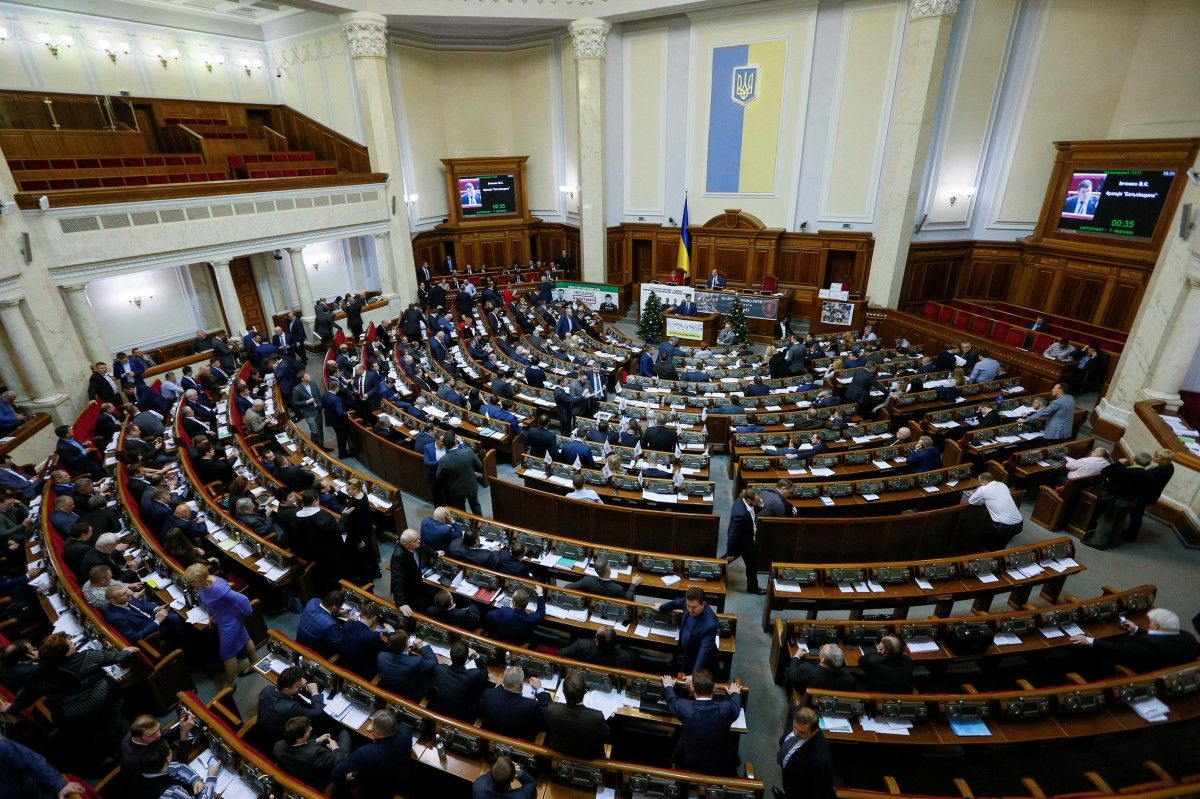
I proposed a scheme to which everyone agreed. First was not to try to pile up too many initiatives in a single bill. Instead, we should have each initiative equal a bill. Then it would be easier as any initiative has its supporters and opponents.
Currently, we have agreed on having three initiatives - all representatives of the factions confirmed their readiness to support them, and we can consider them next year. Among them, for example, is an initiative that provides the identical nature of ministries and committees. But it will be able to be introduced in the next convocation.
That is, the current composition of the Verkhovna Rada adopts the rules that will be applied in the parliament of the next convocation, right?
In many questions, it is so. MPs agreed on the reforms to be implemented in the next convocations. But I am not alarmed with this. We have already talked a lot about it with the heads of factions and Mr Cox: if we approve some things now, in the next convocation they will actually be enforced.
I hope that my proposal agreed with factions on having each reform initiative to equal a single bill will unlock the legislative initiative of Rada reform. And on other issues, which require approval of the session hall, it will also be easier to work. I think a lot has been done in this area. And we can do much more in the near future.
You have already talked about publicity, and I remembered that quite recently the declarations of assets of MPs started to appear in their profiles on the Rada website. Why do you think the e-declarations published were such a shock to most of the public?
It’s not about where the data were published, it’s about the fact that electronic declarations provide much greater transparency, involving a much greater volume of data. I had struggled to file all my data for two days (laughs).
In addition, I should note that electronic declaration of assets is one of the Rada’s successes this year. It’s not only because this initiative was supported, but also because it has been implemented.
Let's talk about the quality of the legislative corps. The eighth convocation is interesting with the fact that the Parliament saw some really new faces. And by the way, these very people stood by your side at the Maidan. So the question is whether you feel any difference between the way you had to coordinate these people as Maidan activists and the way you have to do it now once they’ve become people's deputies.
You know, there are many similar things between the Maidan and the Rada. The debate, which arose at the beginning of the Maidan between civic leaders and politicians remains today, in a slightly different dimension.
I think (this is one of the important achievements of the Maidan) that we were able to go beyond those confrontations and become someone who could smooth down such confrontation. When we were setting up the Maidan Self-Defense, there was full agreement, although there were very different people there. For example, there was a “sotnya” [a 100-strong unit], formed exclusively of party members – the Udar Party sotnya. There was a sotnya comprised of Afghan war veterans, "Right Sector" sotnya, and along with them there was a “Vidsich” sotnya...
Anyway, it seems that sotnyas were more disciplined than the parliamentary factions. You should at least see how you have to summon them to a voting session...
Believe me, there were days during the Maidan events when finding enough people to get to the barricades was not an easy thing, either. We had to come and talk to people to persuade them. It’s just that here in the Rada we all see it publicly.
Have you ever had to threaten or blackmail MPs with anything to make them attend the voting?
I mostly just invited them but sometimes I resorted to tougher actions – I imposed a one-day salary fine for a missed plenary day, published the lists of absentees in Holos Ukrainy newspaper. So I would not call it threats. Moreover, when I voiced these things at the session hall, I asked: "Are there any objections?" No one objected.
Do you think that the publication of lists or a relatively small financial penalty an effective measure?
The thing is that I use the arsenal that is available to me. In fact, publicity and financial penalties are the only things available. These measures alone do not resolve the situation. Although they are sometimes effective. We should recall the situation when the MPs got into a habit of not attending plenary sessions on Wednesdays. But when the information on mass absences was reported by Holos Ukrainy, Wednesdays became full working days, again.
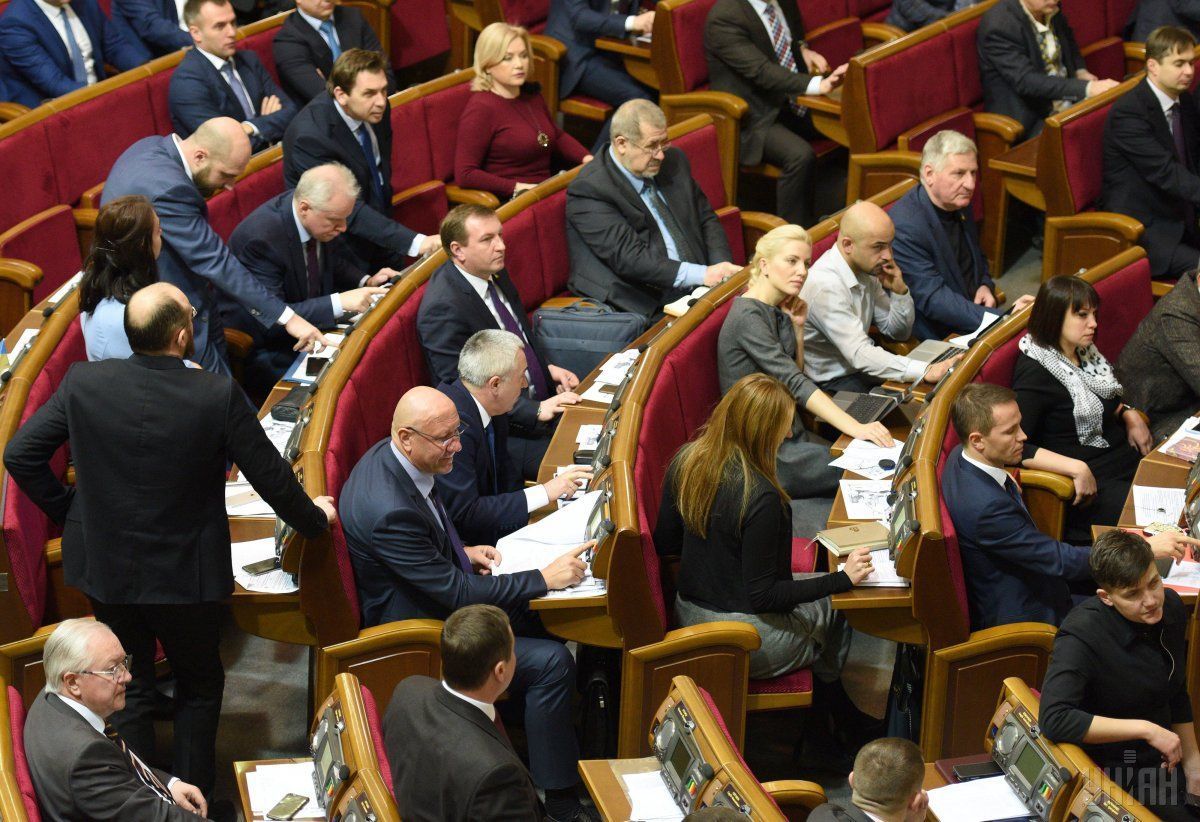
In addition, we must admit one thing: the majority of MPs in this parliament are pro-active people. Those who came from the Maidan and the ATO are set to work, they support me and they are willing to fight with that small part who often do not attend the meetings.
In general, I believe that the MPs have become more disciplined. Although this process will certainly continue. But when I have to call the deputies in, when I have difficulties with ensuring the necessary number of deputies, I appeal to journalists and the public to help out in such matters.
Does it help?
Of course! I remember this from my own experience. For example, I did not vote for a certain bill, and in my constituency people are asking why I did not vote. Or I was not present at some meeting. I am asked why I was not there. Therefore, I believe that public pressure helps to increase the level of discipline. Public influence is key in general.
Several times during our conversation you brought up the issue of insufficient votes. During the repeated voting, when the bills fail to be passed anyway because of two or three, or ten votes lacking, it seems that the coalition has been dead...
I will say a few things. In my opinion, strategically, the coalition has fulfilled its function - when it recommended the Government composition and the prime minister and when it approved the Cabinet.
If we count, the BPP [Bloc of Petro Poroshenko] has 141 MPs, People’s Front has 81 MPs. That’s 222 in total. Besides, there is a minimum of 10 unaffiliated deputies who are also part of the coalition. And when there is a vote, on each of them its own majority is formed.
In fact, a huge advantage of this Parliament is that we have a pro-European, pro-Ukrainian democratic majority. Look, when we vote on national security issues, we see almost 300 votes in support… When we vote European integration bills it’s also nearly 300 votes ...We have a pro-Ukrainian majority, and this is the most important thing.
Because, remember, earlier in the parliament there were actually pro-Ukrainian and pro-Russian parts. That it, we had this strategic civilizational confrontation. We don’t have it anymore. This is a key difference from previous convocations. Now we have become more like the majority of the European parliaments, where they have a debate about the nuances of certain reforms, but on fundamental issues the deputies are united. And if anyone asks me about Rada’s most important achievement this year, I would say it’s stabilization of Parliament. Remember how this spring there were attempts to destabilize the Rada as the topic of early elections was brought up? They said that these elections will definitely be held, if not in the fall of 2016, then the next spring. I emphasize that this issue is off the agenda today.
That is, there will be no snap elections in the spring of 2017?
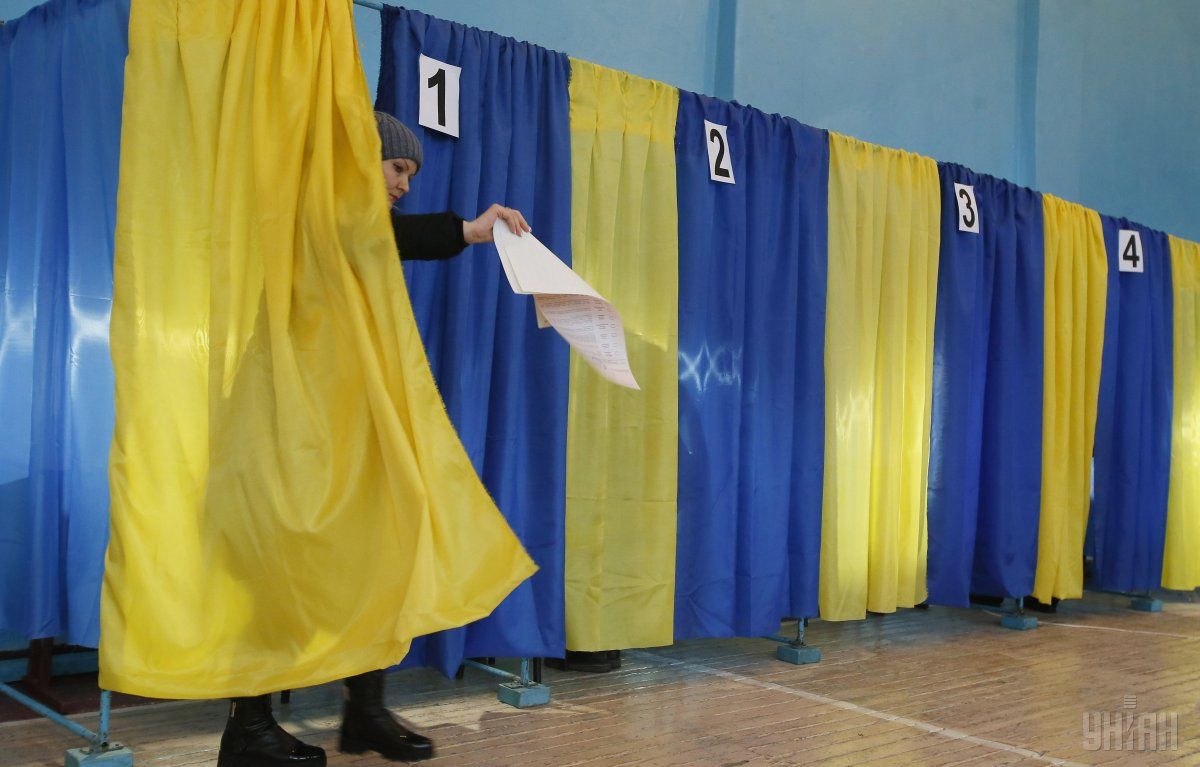
Of course, they won’t. In general, I believe that the issue of early elections is an external topic. For example, it was the same in Moldova when a country was destabilized from within, then the government was changed and then there are attempts to alter the country’s foreign political vector. But I would stress that any attempt to destabilize the Ukrainian parliament will fail.
When we talk about external influence, we can’t but mention the external threats. Do you feel safe as a head of parliament? And can the deputies feel safe in the Verkhovna Rada and outside?
Indeed, first of all, we are the Parliament of the country at war. And security issues are important to us. I know what I am talking about – outside Kyiv hotel where I live, someone recently threw a grenade at my feet. Therefore, the security of Parliament is not an empty word for me. On the one hand, we are trying to make parliamentary space more open, more transparent, to provide access to the Rada for as many people as possible. On the other hand, we must prevent the threat that someone will come to Parliament under the guise of an excursion to commit any dangerous act. So it’s a complicated issue, as the threat remains.
Do you see a way out of this situation?
I try to engage in a dialogue both with those who are outside and inside the Rada. For where there is communication, there is less aggression.
I think that discussion and communication reduce tensions. For example, when the representatives of the trade unions rallied outside the Rada, I invited their representatives, there was also Deputy Prime Minister Kubiv, Minister of Social Policy Reva. We’ve talked for more than two hours. And I'm sure when there is such dialogue, there is less tension on the streets. That was the same when the Afghan war veterans rallied. When there is dialogue, there is less aggression and fewer prerequisites for any contingencies. I believe in dialogue and communication.
But amid Russia’s hybrid war against us, it’s hard to say that any safety is fully assured.
Speaking of communication, how does such communication work between different branches of government - the President, Cabinet and Parliament? How often do you have to negotiate personally with the participation of the president and prime minister?
I can say that communication is very active, and I believe this is also a very positive thing. Because I remember a revenge [of opposition forces] in 2005 that happened largely because the conflicts began among the highest state leadership. As a historian, I remember that at all stages we were losing mostly due to the internal confrontation rather than because of too much of an external aggression. That’s the type of confrontation there was between Petliura and Skoropadsky, Konovalets, Vinnychenko, Hrushevsky, as it was in the days of Ruina [the second part of XVII Century marked with the fall of Ukrainian statehood and wars]... And so, I believe, it is very important that there be constant communication at the highest level.
Do you think that now we can preserve control over the situation and not bring it to such confrontation as there has been between the Ukrainians in the 1920’s?
I think this is one of the key prerequisites for statehood.
Do the prime minister and the president have the same understanding, in your opinion?
Yes, I feel that they have the same understanding. I believe that the very fact of our constant communication is very important. We communicate with the prime minister every Friday, when there is an hour of questions to the government. The whole government comes in my office, I treat them to some coffee, and we get ready for an hour of questions... It is important that we have also established great communication at the level of Rada committees and the ministers. I think that there's a high level of communication.
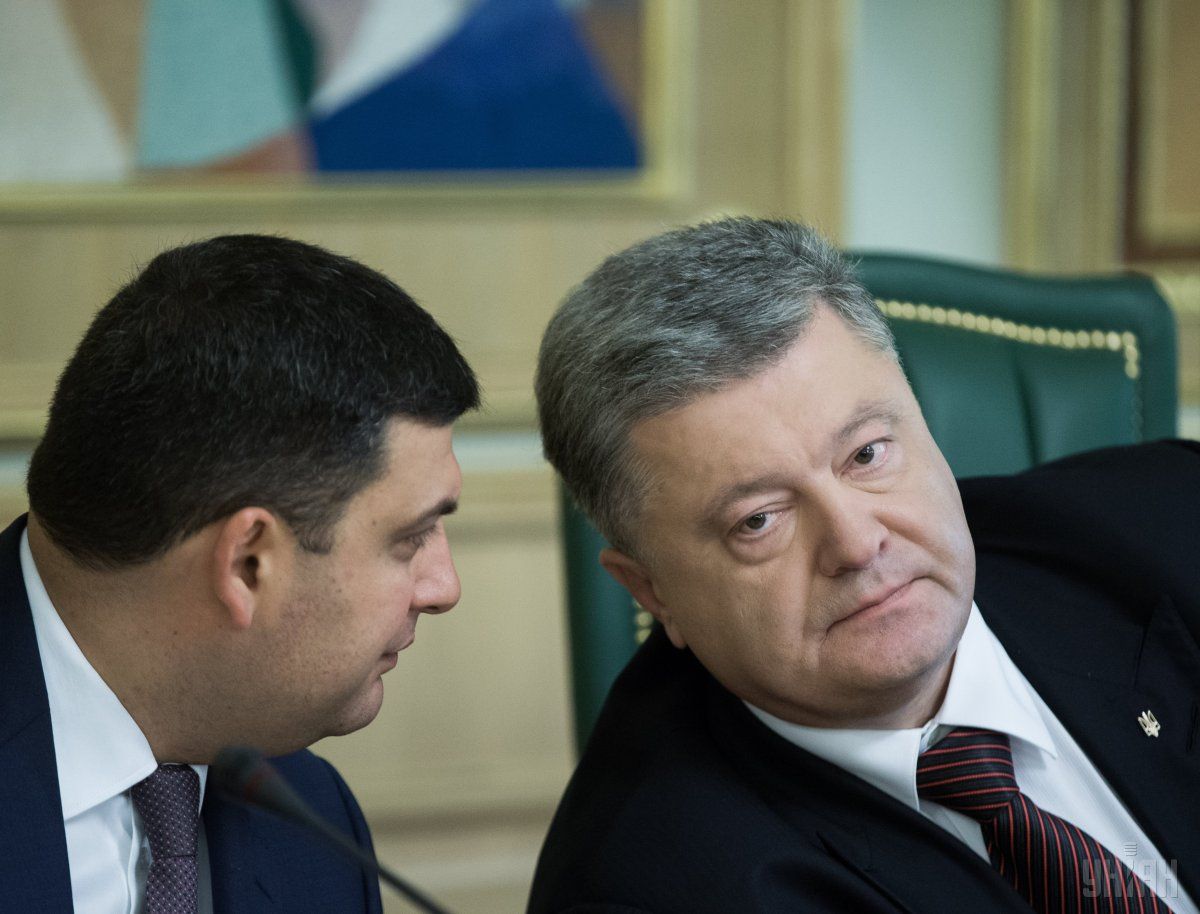
We have conversations with the president practically every week. We talk through key risks and key challenges that we face. I believe there is a high level of communication between the highest leaders today. I think this is a very good thing for us to be able to respond to all the challenges we face, especially the challenges of Ukraine’s destabilization from within.
Does the risk of destabilization remain high?
I believe we shouldn’t underestimate Putin. His actions are of a global scope, his aggression is very multifaceted, and, of course, the Kremlin will (as it does now) allocate funds both for the Russian Army and for the destabilization of Ukraine from within. Therefore, we can’t ever, at any stage, relax and assume that everything is already fine. We have to hold our ground daily and weekly both in the East and here in Kyiv.
Of course, we have passed the most difficult stage, the most difficult economic phases when the country was on the verge of a default. And this year we adopted a budget in which we raised the minimum wage, the minimum subsistence level... This is already the budget of development when people feel support, when they witness economic development. But this in no way should bring us to an illusion that the danger is left behind.
I can’t but ask, why adopting a budget took all night.
That’s because we considered it in line with the full procedure. I want to respond to all the critics that it’s not about adopting it overnight. It is important that we have passed all the amendments. Each of the budget laws had 200 to 400 amendments... We can say that it was an experiment to some extent. We agreed with Groysman: “Let’s try to pass a budget exactly in line with a procedure.” Therefore, we considered each amendment.
I should recall that the budget was submitted to parliament before September 15, that’s according to a law. It passed its first reading, all amendments of the MPs were taken into account and the government submitted its proposals. That is, we managed to pass a budget from A to Z, in full, in line with the full procedure.
How did you manage to keep the deputies in the session hall? Did you lock the doors?
There is this advantage of voting on the budget, there is even a tradition that if there is a budget at stake, it must be considered. That’s because if we don’t consider it on Tuesday, we will have to do it on Thursday...
Everyone understood - and there is also a high level of responsibility here – that the budget had to be adopted. Failing to pass the budget would be a disaster for the country, a disaster for our security. So everybody understood that this was the day we had to do it right.
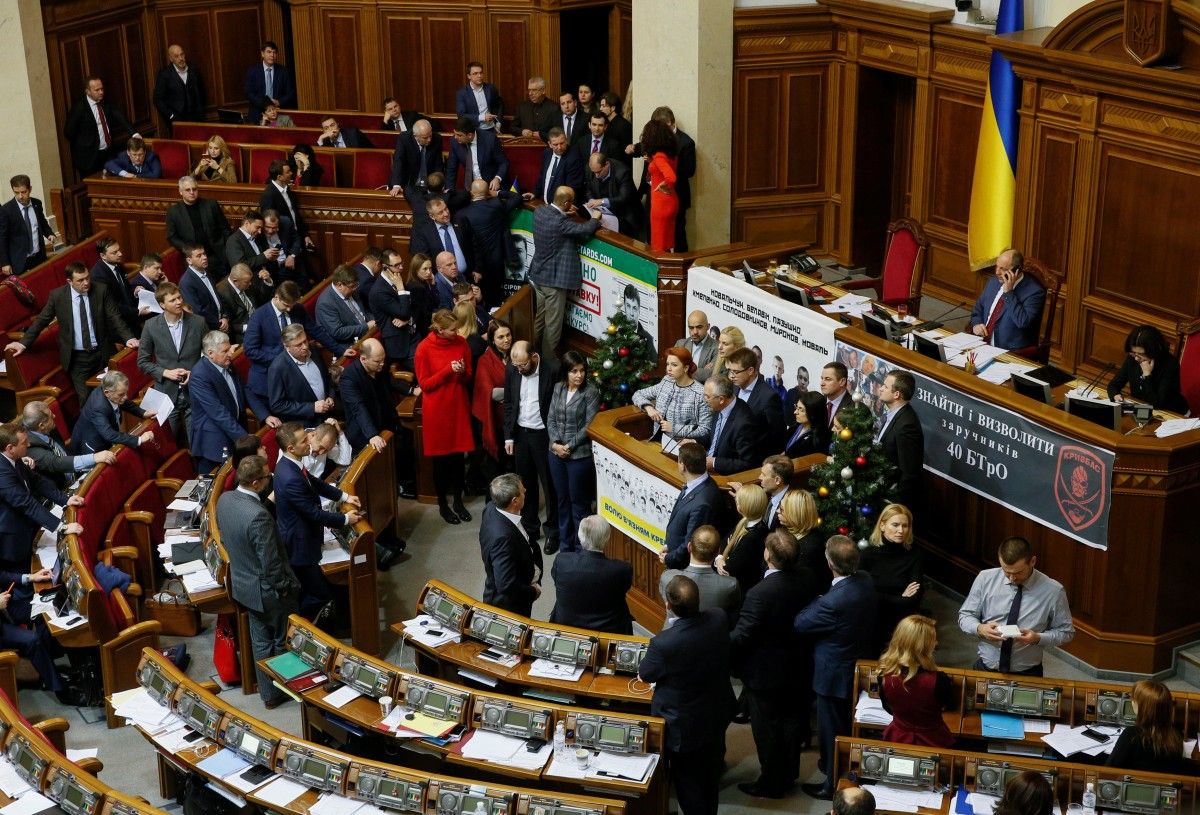
By the way, we were discussing how to do it better. We could have passed the bills on Tuesday and vote for the whole budget as early as Thursday. However, we decided: “Let's better pass it all today.” This was the decision of the majority of deputies, because I put to the vote the question of working until the adoption of the budget. This proposal was supported.
I think we went the right way as we have demonstrated that the budget can be adopted in accordance with a full procedure.
Having voted for the budget, the MPs seem to have closed their year. But the public is not really happy with the long winter vacation of the deputies...
First of all, you cannot call it a vacation, because this is not a vacation. We have a week of work in constituencies, and another week of work in committees. Of course, had we scheduled a plenary week for the Christmas holidays, it would have been difficult to hold these sessions. And by the way, it happens every winter, when on Christmas and New Year holidays, the breaks in plenary sessions are longer.
Finally, a personal question: Russian propaganda constantly labels Ukrainian politicians – they either look for "[Right Sector’s] Yarosh business cards" or spins statements of a "Bloody Pastor" [NSDC Secretary Oleksandr Turchynov] ... Do they have some "Bandera-fascist" label for you, personally?
Of course, there were many propaganda tricks I experienced during the Maidan events and ever after. They would throw in accusations over that Maidan sniper thing, they would also blame me for the Odesa tragedy [the death of civilians in a massive fire in the building of the Odesa trade unions following clashes of pro-Maidan activists with anti-Maidan forces]... I think that if the aggressor state defines me as one of the key figures whom it tries to hit harder, it means that I'm doing everything right.
But I’ve never heard any particular nicknames for me.
What is your main goal as a person who at this particular time in this particular position is molding Ukraine’s history?
Of course, it’s keeping the state together and winning. I remember my father telling me on my last year’s birthday: "Your grandfather fought in the UGA [Ukrainian Galician Army] and they failed to retain the state. Your uncles fought in the UPA [Ukrainian Rebel Army] and they also failed to retain the state. So you now be responsible for yourself and for them as well, in order to keep the state together." This is my main guideline.
Tatiana Urbanskaya

